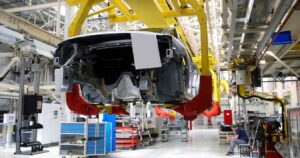In recent years, electric cars have gained significant popularity as a greener alternative to traditional gasoline-powered vehicles. With their promise of reduced emissions and a cleaner future, they seem like the perfect solution to combat climate change.
However, upon closer inspection, it becomes evident that electric cars are not without their flaws. In this article, we will explore ten reasons why electric cars may actually be bad for the environment.
Table of Contents
Toggle1. Production and Disposal of Batteries
Electric cars rely heavily on large lithium-ion batteries for their power storage. The production of these batteries involves mining, which can cause environmental damage and disrupt ecosystems. Furthermore, the disposal of these batteries presents a challenge, as they contain toxic and hazardous materials that can leak into the environment if not handled properly.
The mining process for lithium, cobalt, and nickel, which are essential for battery production, often leads to deforestation, habitat destruction, and water pollution. Additionally, the extraction of these materials requires significant amounts of energy, further contributing to carbon emissions and environmental degradation.
2. Dependency on Rare Earth Metals
Electric car batteries require rare earth metals like lithium, cobalt, and nickel. The extraction of these metals has significant environmental consequences, including deforestation, water pollution, and habitat destruction. Moreover, the limited availability of these metals poses concerns about future supply and the potential for geopolitical conflicts.
The extraction and processing of rare earth metals are energy-intensive and can release harmful pollutants into the environment. Furthermore, the mining operations often occur in regions with lax environmental regulations, exacerbating the negative impacts on ecosystems and local communities.
3. Energy-Intensive Manufacturing Process
The production of electric cars requires a substantial amount of energy, mainly due to the manufacturing of batteries and other complex components. This energy-intensive process often relies on fossil fuels, which can result in significant carbon emissions. Thus, the environmental benefits of electric cars can be offset during the manufacturing stage.
Additionally, the manufacturing process of electric cars involves the use of various materials, such as plastics, metals, and rare earth elements. The extraction and processing of these materials contribute to pollution, habitat destruction, and carbon emissions, further adding to the environmental impact.
4. Electricity Generation and Grid Strain
While electric cars themselves produce zero emissions, the electricity used to charge them is generated from various sources. In many regions, fossil fuels still dominate the energy mix, which means that electric cars indirectly contribute to carbon emissions. Additionally, the increased demand for electricity from charging stations can strain the existing power grid, leading to further environmental challenges.
The reliance on fossil fuel-based electricity generation means that electric cars are not as clean as they may initially seem. Until the energy grid transitions to renewable sources on a large scale, the environmental benefits of electric cars will be limited.
5. Infrastructure Requirements
The widespread adoption of electric cars would necessitate a massive overhaul of infrastructure. Building a comprehensive charging network requires substantial resources, such as constructing new charging stations and upgrading existing electrical grids. These infrastructure developments can have significant environmental impacts, including land use changes, increased energy consumption during construction, and potential disruption to ecosystems and natural habitats.
The construction of charging stations often requires the clearing of land, leading to deforestation and the destruction of wildlife habitats. Additionally, the energy required for the manufacturing and transportation of charging infrastructure components can contribute to carbon emissions and pollution.
6. Life Cycle Analysis
When evaluating the environmental impact of electric cars, it’s essential to consider their entire life cycle, from production to disposal. Studies have shown that the manufacturing and disposal processes of electric cars can generate significant greenhouse gas emissions and waste. These factors should be taken into account when assessing their overall environmental footprint.
The production of electric cars involves multiple stages, including mining and processing raw materials, manufacturing components, and assembling the vehicles. Each of these stages requires energy and resources, contributing to carbon emissions, water pollution, and waste generation. Similarly, at the end of their life cycle, electric cars present challenges for proper disposal and recycling of their components, including batteries.
Indirect Environmental Impacts
While electric cars themselves may not emit carbon dioxide during operation, the production of electricity used to charge them can have indirect environmental consequences. If the electricity is generated from fossil fuel sources, the emissions from power plants must be considered. Additionally, the extraction and transportation of fossil fuels for electricity generation can cause habitat destruction, water pollution, and contribute to climate change.
Furthermore, the increased demand for electricity to power electric cars can strain the existing power grid. This may result in the need for more power plants, potentially leading to further environmental degradation and the displacement of communities.
Limited Range and Charging Infrastructure
One of the criticisms of electric cars is their limited range compared to traditional gasoline-powered vehicles. The need for frequent charging can lead to range anxiety, where drivers may hesitate to take long trips due to concerns about finding charging stations. This limitation can also lead to the purchase of additional vehicles for longer journeys, thereby increasing the overall environmental impact.
Moreover, the current charging infrastructure is not as widespread or convenient as traditional gas stations. The lack of easily accessible charging points in rural areas or during long-distance travel poses challenges for electric car owners, potentially discouraging widespread adoption and perpetuating the use of gasoline-powered vehicles.
E-Waste and Battery Disposal Challenges
The disposal of electric car batteries presents environmental challenges. As the number of electric cars on the road increases, so does the volume of battery waste. Improper disposal of these batteries can release hazardous chemicals into the environment, leading to soil and water contamination. The recycling of electric car batteries is still in its early stages, and the process is energy-intensive and not yet fully efficient.
To mitigate the environmental impact of battery waste, it is crucial to develop and invest in effective recycling and disposal systems. However, until such systems are widely implemented, the improper handling of electric car batteries remains a significant concern.
Overall Energy Consumption
While electric cars are often touted as energy-efficient, their overall energy consumption should be taken into account. From the extraction and manufacturing of materials to the electricity generation and charging processes, electric cars require a significant amount of energy throughout their life cycle. This energy consumption contributes to the demand for resources, many of which have environmental impacts associated with their extraction and processing.
Conclusion
While electric cars offer certain advantages in terms of reducing tailpipe emissions, it is important to recognize that they are not without their drawbacks. The production and disposal of batteries, the dependency on rare earth metals, the energy-intensive manufacturing process, and the indirect environmental impacts all contribute to the complex environmental footprint of electric cars.
Addressing these challenges requires a holistic approach that includes transitioning to cleaner electricity generation, improving battery recycling and disposal practices, and considering the overall life cycle impacts of electric vehicles. Only through a comprehensive and sustainable approach can we truly minimize the environmental consequences of our transportation choices and work towards a greener future.
























